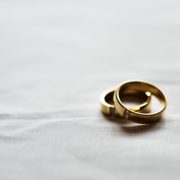Innocent Spouse Rules Offer Protection Under Some Circumstances
Joint Filing Status
Generally, married taxpayers benefit overall by filing a joint tax return on the federal level. This is particularly the case when one spouse earns significantly more than the other. Filing jointly may also help the couple maximize certain income tax deductions and credits.
But joint filing status comes with a catch. Each spouse is “jointly and severally” responsible for any tax, interest and penalties attributable to the return. And this liability continues to apply even if the couple gets a divorce or one spouse dies. In other words, the IRS may try to collect the full amount due from one spouse, even if all the income reported on the joint return was earned by the other spouse.
Basic Rules
However, the tax law provides tax relief for an “innocent spouse.” Under these rules, one spouse may not be liable for any unpaid tax and penalties, despite having signed the joint return.
To determine eligibility for relief, the IRS imposes a set of common requirements. The spouses must have filed a joint return that has an understatement of tax, and that understatement must be attributable to one spouse’s erroneous items. For this purpose, “erroneous items” are defined as any deduction, credit or tax basis incorrectly stated on the return, as well as any income not reported.
From there, the other (“innocent”) spouse must establish that, at the time the joint return was signed, he or she didn’t know — or have reason to know — there was an understatement of tax. Finally, to qualify, the IRS needs to find that it would be unfair to hold one spouse liable for the understatement after considering all the facts and circumstances.
Additional Notes
For many years, innocent spouse relief had to be requested within two years after the IRS first began its collection activity against a taxpayer. But, in 2011, the IRS announced that it would no longer apply the two-year limit on collection activities.
In addition, by law, when one spouse applies for innocent spouse relief, the IRS must contact the other spouse or former spouse. There are no exceptions even for victims of spousal abuse or domestic violence.
Help Available
Historically, courts haven’t been particularly generous about upholding claims under the innocent spouse rules. State laws can also complicate matters. If you’re wondering whether you’d qualify for relief, please contact us for help.
Sidebar: What does the IRS consider?
The IRS considers “all facts and circumstances” in determining whether it would be inequitable to hold an “innocent” spouse liable for taxes due on a jointly filed tax return. One factor that may increase the likelihood of relief is that the taxes owed are clearly attributable to one spouse or an ex-spouse who filled out the errant return.
If one spouse was deserted during the marriage, or suffered abuse, it may also improve the chances that innocent spouse relief will be granted. In some cases, the IRS may examine the couple’s situation to determine whether the spouse applying for relief knew about the erroneous items.



